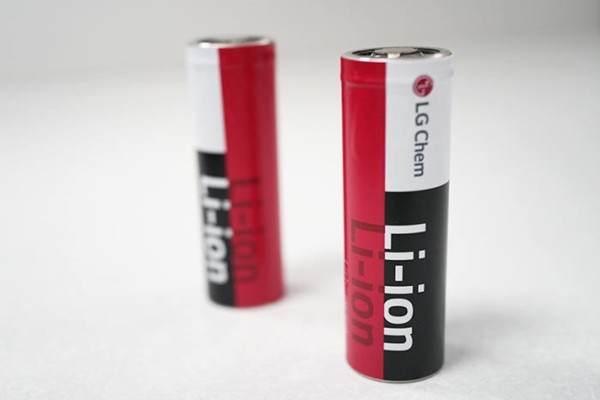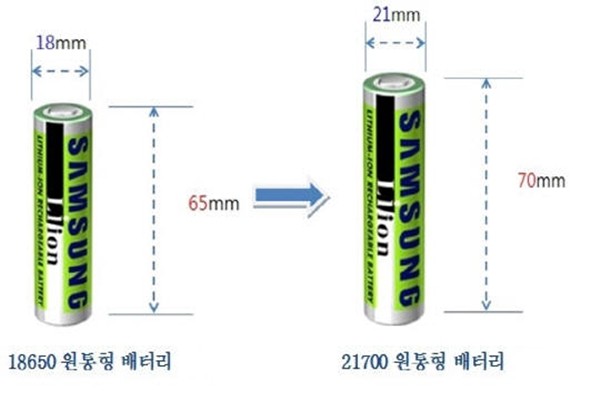Battery manufacturers such as LG Chemicals, Samsung SDI, and Panasonic have started competing fiercely with each other in order to win a contract from a British automotive manufacturer called Jaguar as it decides to use cylindrical batteries for its next-generation electric vehicles.
According to industries on the 25th, Jaguar decided to use 21,700 cylindrical batteries for its next electric vehicle model that will be released in the future and started a bidding process for a potential supplier of these batteries.
It is heard that amount of batteries that Jaguar is asking for is about 2 million batteries per year. Considering that about 7,000 cylindrical batteries are used for one Tesla car, this amount can produce about 28,000 electric vehicles annually.
Considering that amount of output of cylindrical batteries from South Korean businesses is currently about 1 million per year, this is a huge contract that is asking for twice that amount.
“Generally five production lines are needed to produce one million cylindrical batteries.” said a representative in this industry. “Whoever secures Jaguar as its customer, it will be able to grab opportunities to grow rapidly in cylindrical battery business.”

Besides Samsung SDI and LG Chemicals, Japan’s Panasonic and China’s Lishen and BAK are also able to mass-produce 21,700 cylindrical batteries currently. Industries believe that South Korean businesses, which have flexibility in responding to supply network, have upper hands in winning a contract from Jaguar compared to Panasonic that is wholly responsible for supplies that will be supplied to Tesla. Although Chinese businesses have recently started making aggressive approach, there are still differences in technologies between them and South Korean businesses.
Cylindrical batteries, which were usually used for laptops or electric tools in the past, started drawing attention as they were used by Tesla in 2008 for its first electric vehicle called Roadster. Because they can be easily obtained as they standardized and have low height, efficiency in design is very high. Their high power and competitive price are also their strengths.
Battery industries are starting to increase capacity of cylindrical batteries as they look to target electric vehicle markets. While capacity per cell was about 1,800mAh initially, 3,000mAh cylindrical batteries that were developed two to three years ago are being used for electric vehicles that were released recently. Currently South Korean battery manufacturers are in the midst of developing 21,700 cylindrical batteries with capacity between later-end of 4,000mAh and front-end of 5,000mAh.

A battery also needs to be bigger in order to increase its capacity. 21,700, which is a new standard for cylindrical batteries, indicates a lithium-ion battery with diameter and height of 21mm and 70mm respectively. Because it is bigger than a 18,650 cylindrical battery (diameter:18mm, height:65mm), its capacity can also be increased up to 50%.
Tesla started using 21,700 batteries for its new economic model called ‘Model 3’ that was released this year. Lucid Motors and Faraday Future, which are electric vehicle startup companies in the U.S., decided to use 21,700 batteries for their upcoming electric vehicles and agreed to receive batteries from South Korean battery manufacturers. Global automotive manufacturers are also considering to switch from 18,650 batteries to 21,700 batteries.
“As cylindrical batteries are drawing attention from electric vehicle markets due to their stability and versatility, change of a standard of a cylindrical battery is rapidly taking place from 18,650 to 21,700.” said a representative in this industry. “When global automotive manufacturers decide to use cylindrical batteries for their electric vehicles, amount of supplies will grow enormously for battery manufacturers.”
Staff Reporter Jung, Hyunjung | iam@etnews.com